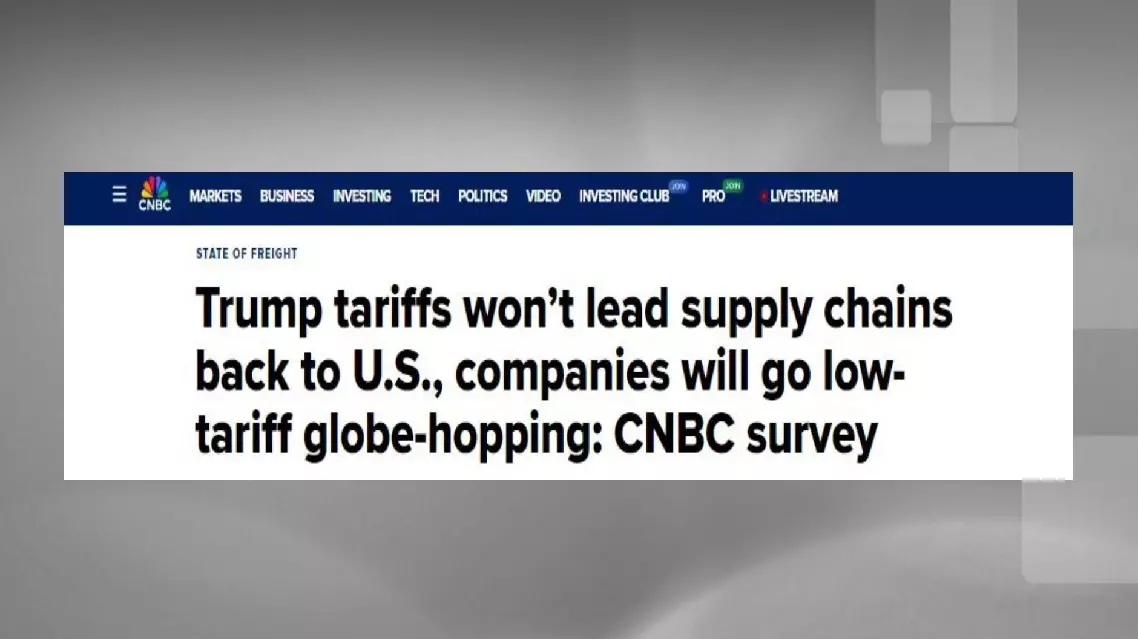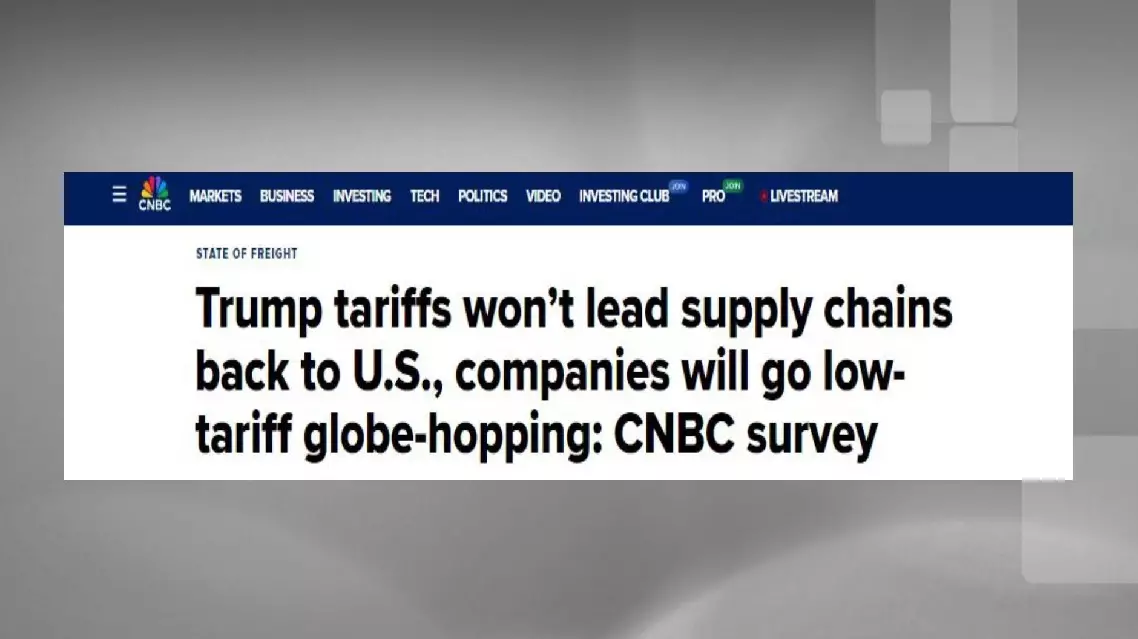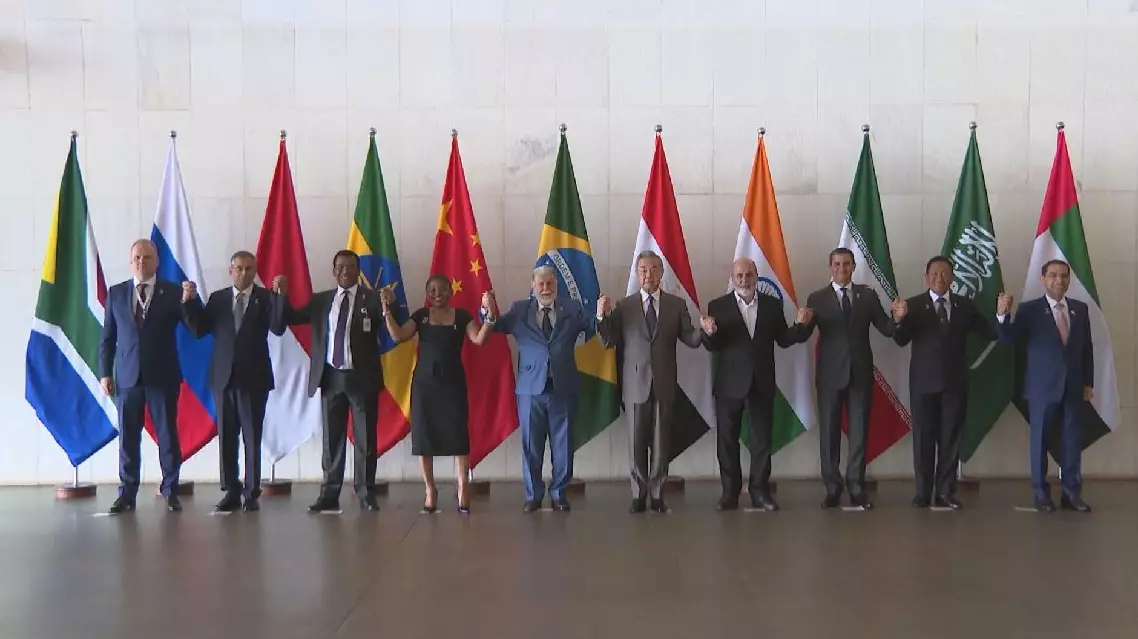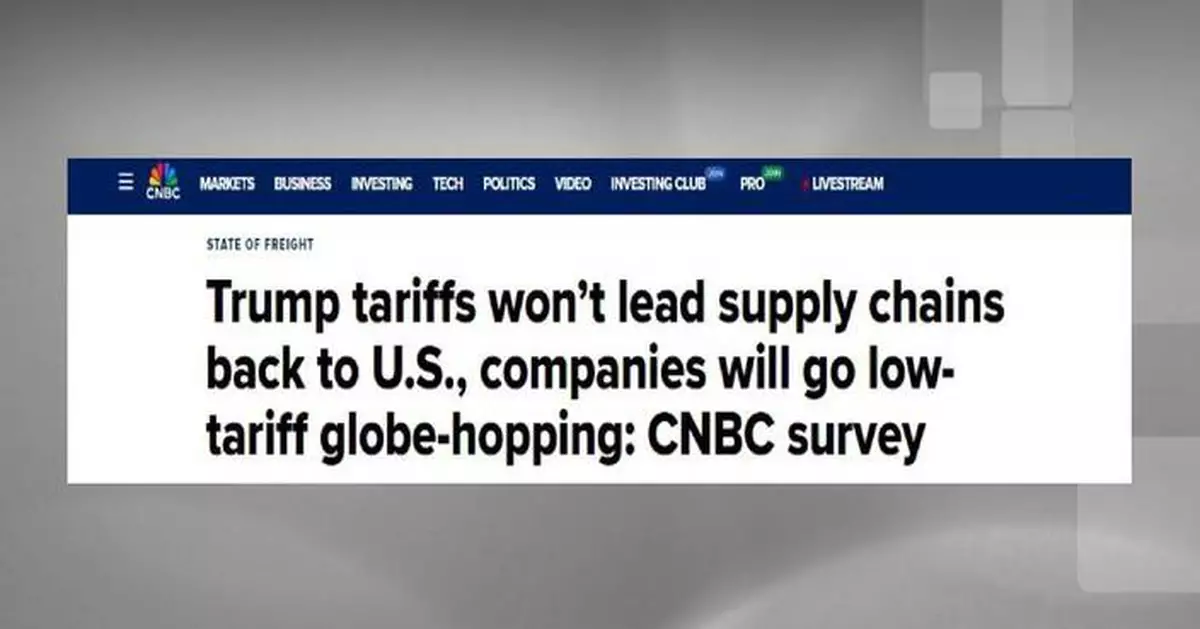Using tariffs as an economic policy tool may fail to bring supply chains back to the United States, but may instead drive costs higher, according to a survey released by the American business news network CNBC on Tuesday.
Despite the Trump administration's claims of an impending domestic manufacturing boom, a survey of 380 American enterprises and business institutions conducted shortly after the announcement of sweeping tariffs revealed that U.S.-based companies anticipate supply chain re-shoring could double their costs, prompting a global search for low-tariff regimes.
Among those surveyed, 18 percent estimated that building a new domestic supply chain would cost at least double the current level, while 47 percent projected costs to exceed twice the current level.
Around 61 percent of respondents said that moving the supply chain to low-tariff countries is more cost-effective than relocating back to the United States. Among the enterprises that are unwilling to reshore production, 57 percent listed cost as the primary reason, while 21 percent pointed to the challenge of finding skilled workers.
Besides tariffs, consumer demand, raw material prices and other factors are also listed as the core concerns of enterprises' supply chains. Among the enterprises that are willing to return production, 41 percent expect it to take three to five years to rebuild the domestic supply chain, and 33 percent of the enterprises believe it will take more than five years.

Tariffs unlikely to restore U.S. supply chains: survey

Tariffs unlikely to restore U.S. supply chains: survey
Chinese Foreign Minister Wang Yi said on Wednesday that BRICS countries need to strengthen unity and cooperation to act as the most reliable force in safeguarding the legitimate rights and interests of developing countries.
Wang, also a member of the Political Bureau of the Communist Party of China (CPC) Central Committee and director of the Office of the Central Commission for Foreign Affairs, made the statement at the 15th Meeting of BRICS National Security Advisers and High Representatives on National Security in the Brazilian capital of Brasilia.
He stated that once-in-a-century changes are unfolding across the world at a faster pace, with new challenges, changes, and problems constantly emerging.
Yet regardless of how the international landscape changes, peace and stability remain a common pursuit of the international community, development and prosperity are always a common expectation of all countries, and seeking strength through unity among the Global South is always an unstoppable historical trend, he said.
Wang said that under the new global circumstances, more and more countries are willing to listen to the voice of BRICS and hope to join the BRICS family. The development of BRICS represents the growth of peace forces, the strengthening of development forces, and the empowerment of the forces of justice in the world.
BRICS countries must stand at the forefront of the times, strengthen unity and cooperation, demonstrate the assumption of responsibility, and promote the significant role of greater BRICS cooperation, to act as the most reliable force in safeguarding the legitimate rights and interests of developing countries, he noted.
Wang stated that a transactional approach in international politics and weaponizing global trade will only aggravate the trust crisis among countries and jeopardize global security.
Standing at the crossroads of history, BRICS countries must provide a clear answer: should they allow unilateralism to spread unchecked, or steadfastly champion for multilateralism, Wang said.
Concession leads nowhere and unity is where the hope lies, he added.
Wang said that BRICS countries should hold high the banner of multilateralism, take the lead in safeguarding the international system with the United Nations at its core and the multilateral trading system with the World Trade Organization at its core, and promote development of the international order in a more just and reasonable direction.
Other parties at the meeting agreed that BRICS countries should build consensus and make joint efforts to oppose all forms of bullying, interventionism and tariff abuse, adhere to multilateralism, defend the common interests of the Global South, and work together to build a multipolar world of peace, security, fairness and justice.

BRICS countries should become reliable force in safeguarding developing countries' rights: FM





















































